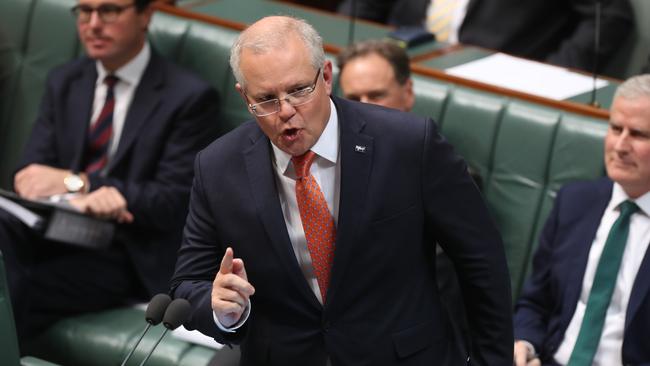
This is a considerable political triumph and the unquestionable validation of a mandate.
Morrison has quickly established his authority as Prime Minister in the new parliament, and the Senate crossbench has sent a message to the electorate that it will act responsibly on policy it believes to be in the national interest.
It is as good a start to a parliamentary term as any government could hope for.
For some cabinet ministers, Morrison’s tax victory will also be a second justification for the events of last August and the removal of Malcolm Turnbull.
More importantly, Morrison will be able to argue that the government has acted quickly to respond to the economic imperative, as Labor has acknowledged.
It will put thousands of dollars straight into the pockets of hard-working Australians and provide at least a first instalment on the fiscal policy the Reserve Bank now claims will be needed to protect jobs and buffer a softening economy in the years ahead.
The question for Labor now is where it goes from here. As Graham Richardson told this newspaper several weeks ago, if Labor says no to tax cuts, what does Labor say yes to? In the end, Anthony Albanese hedged his bets and stepped out of the way.
The political convulsions of the past two weeks risked cementing the image of a party that has learned little from the election result and remains wedded to the economic principle of higher taxation. While criticism of the new Labor leader may be warranted for this reason, it also misses a salient point.
There was never any prospect that Albanese would do anything other than wave through the tax cuts once the government was assured of the crossbench numbers to get it through the Senate.
But Albanese had to be seen to be having a fight and presenting an alternative policy that appeared at least reasonable in its intent.
To do otherwise would have been a betrayal of a position that was universally agreed to even by those arguing inside the shadow cabinet to support the tax cuts without debate.
Equally, there was no prospect of Labor winning this fight. Albanese in the end will be seen to have taken the only credible course available to him.
The side-story to all this is the role played by Senate leader Mathias Cormann.
The Finance Minister was as instrumental to this outcome as he was to getting through the first round of tax cuts under Turnbull. It is revealing that Morrison asked Cormann to take charge of the strategy to get the tax cuts through.
The narrative being built up around Cormann and Morrison by some as two men who hate each other lacks credibility for this fact alone.
Suggestions that Cormann has been sidelined from the inner circle appear equally ludicrous.
Last week, Cormann was sitting next to Morrison at a dinner with US President Donald Trump in Osaka, the following night they were having a beer together at the Hilton Hotel in the same city.
Morrison also understands the value of Cormann to the longevity of this government.
It was Cormann who first proposed the Senate voting changes to Turnbull when he was brought in as acting special minister of state following Mal Brough’s untimely departure.
It is those changes that have now cleaned out the Senate and cut the crossbench almost in half, making the government’s task of negotiation infinitely less frustrating.




It has taken just 47 days for Scott Morrison and Josh Frydenberg to deliver on the Coalition’s central election promise.